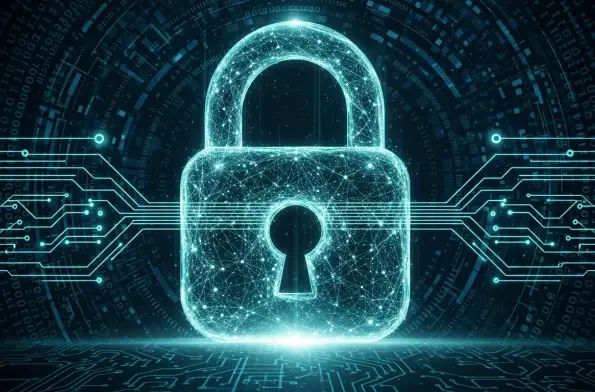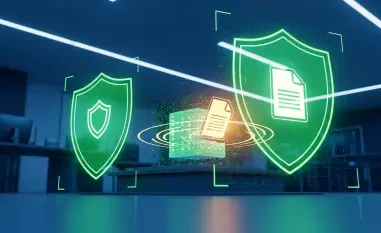Introduction to New York’s Cybersecurity Initiative
Imagine a small town hall in upstate New York, where a single cyberattack could compromise sensitive resident data, disrupt essential services, and erode public trust in government operations, posing a severe threat to community stability. This scenario is no longer a distant threat but a pressing reality as cyber risks escalate across the digital landscape. New York State has recognized this urgent challenge and is taking decisive action to fortify cybersecurity for local governments, ensuring they are equipped to handle modern threats.
The importance of cybersecurity cannot be overstated in an era where personal information, government services, and critical infrastructure are increasingly digitized. From protecting voter records to securing utility systems, robust digital defenses are vital to maintaining public safety and operational continuity. Cyber breaches can lead to significant financial losses and undermine confidence in public institutions, making this a top priority for state leadership.
Under Governor Kathy Hochul’s administration, New York is placing cyber resilience at the forefront of its agenda. This commitment reflects a broader understanding that safeguarding digital assets is integral to everyday life, from online banking to accessing state resources. The state’s proactive stance aims to stay ahead of evolving threats, setting a strong foundation for local governments to build upon.
Details of the State and Local Cybersecurity Grant Program (SLCGP)
Funding Allocation and Purpose
New York State has secured .9 million through the federal Infrastructure Investment and Jobs Act to strengthen cybersecurity at the local level. This funding, channeled through the State and Local Cybersecurity Grant Program (SLCGP), targets a critical need by providing multi-factor authentication (MFA) tokens to public sector entities. These tokens serve as a key defense mechanism against unauthorized access, addressing a common entry point for cyberattacks.
The primary objective of this grant is to mitigate immediate cyber risks while fostering long-term resilience. By equipping local governments with MFA tools, the state aims to reduce the likelihood of breaches that could disrupt services or expose sensitive data. This initiative represents a targeted investment in prevention, ensuring that even smaller municipalities with limited resources can adopt essential security measures.
Beyond immediate protection, the funding lays the groundwork for sustained improvements in digital infrastructure. It underscores a strategic approach to cybersecurity, recognizing that proactive measures today can prevent costly recovery efforts tomorrow. This financial support is a lifeline for entities that might otherwise struggle to prioritize such upgrades.
Distribution Mechanism and Reach
To maximize the impact of the SLCGP funds, the New York Office of Information Technology Services is adopting a centralized approach to procure and distribute MFA tokens. This streamlined method ensures efficiency and consistency, allowing the state to oversee the rollout of these critical tools across diverse regions. It eliminates logistical barriers that could hinder smaller or under-resourced entities from benefiting.
The goal is to extend access to a wide array of eligible public sector organizations, from rural counties to urban agencies. By prioritizing broad coverage, the initiative addresses disparities in cybersecurity readiness, ensuring that no community is left vulnerable due to geographic or economic constraints. This inclusive strategy amplifies the program’s effectiveness in safeguarding public systems.
Additionally, this distribution model directly tackles vulnerabilities in local government information systems, many of which lack modern security protocols. Centralized procurement reduces costs and simplifies implementation, enabling rapid deployment of defenses where they are most needed. It’s a practical solution to a complex problem, bridging gaps in technical capacity at the local level.
Challenges in Cybersecurity for Local Governments
Local governments face an uphill battle as cyber threats grow in both frequency and sophistication, targeting everything from tax records to emergency response systems. Ransomware, phishing, and other attacks have become more prevalent, exploiting weaknesses in public sector networks. These incidents can paralyze operations, demanding urgent attention and resources that many municipalities simply do not have.
Budget constraints pose a significant hurdle, often forcing local entities to operate with outdated technology or minimal IT support. Many lack the funds to hire specialized staff or invest in cutting-edge defenses, leaving them exposed to risks that larger organizations might better manage. This financial limitation creates a vicious cycle, where insufficient protection invites more frequent and severe attacks.
To address these barriers, state-supported funding like the SLCGP, combined with technical assistance, offers a viable path forward. Grants can alleviate fiscal pressures, while training programs and shared resources help build expertise among local staff. Collaborative efforts between state and local levels are essential to create a unified front against cyber adversaries, ensuring that every community is adequately protected.
Regulatory and Strategic Framework Supporting the Initiative
The SLCGP operates within a robust framework of federal and state policies, with the Infrastructure Investment and Jobs Act serving as a cornerstone. This legislation provides the financial backbone for cybersecurity enhancements, emphasizing the need for coordinated efforts across government tiers. It reflects a national commitment to securing digital infrastructure against escalating threats.
Compliance with cybersecurity best practices is a key component of this initiative, with MFA adoption highlighted as a fundamental standard. This simple yet effective measure significantly reduces the risk of unauthorized access, aligning with recommendations from leading security experts. By embedding such practices into grant requirements, the program ensures that funded entities meet essential benchmarks for protection.
Moreover, this effort aligns with broader national goals to fortify digital defenses at all levels of government. It represents a piece of a larger puzzle, contributing to a cohesive strategy that prioritizes resilience in an interconnected world. New York’s participation in this framework not only benefits local communities but also strengthens the collective security posture of the nation.
Future Implications of New York’s Cybersecurity Efforts
New York’s grant program could serve as a model for other states seeking to enhance local cybersecurity, demonstrating the value of targeted federal funding. By showcasing the impact of MFA implementation, the initiative may inspire similar efforts elsewhere, creating a ripple effect of improved digital safety. This pioneering approach highlights the potential for scalable solutions in addressing widespread challenges.
Looking ahead, this program may pave the way for advancements in cyber defense tools and strategies. As technology evolves, so too must the methods used to protect it, potentially leading to innovations in authentication systems or threat detection. The lessons learned from this rollout could inform future investments, ensuring that defenses keep pace with emerging risks.
The long-term impact on public trust in government systems is another critical consideration. Successful implementation of these measures can reassure citizens that their data and services are secure, fostering greater confidence in public institutions. Ongoing investments in digital security will be vital to maintaining this trust, underscoring the need for sustained commitment beyond initial funding.
Conclusion: A Step Forward in Cyber Resilience
Reflecting on New York State’s efforts, it becomes clear that the proactive distribution of targeted grants marks a significant advancement in local cybersecurity. The allocation of over $13.9 million to provide MFA tokens addresses immediate vulnerabilities and builds a foundation for enduring protection across public sector entities.
This initiative stands out as a practical response to the pressing cyber threats that have plagued government systems. By focusing on a proven solution like MFA, the state ensures that even resource-constrained municipalities gain access to essential defenses, narrowing the gap in digital readiness.
Moving forward, stakeholders should consider expanding technical training and fostering inter-agency collaboration to sustain this momentum. Exploring additional funding avenues and integrating emerging technologies could further bolster resilience. These steps would ensure that the progress achieved through this program continues to evolve, safeguarding public safety and trust in an increasingly digital world.













